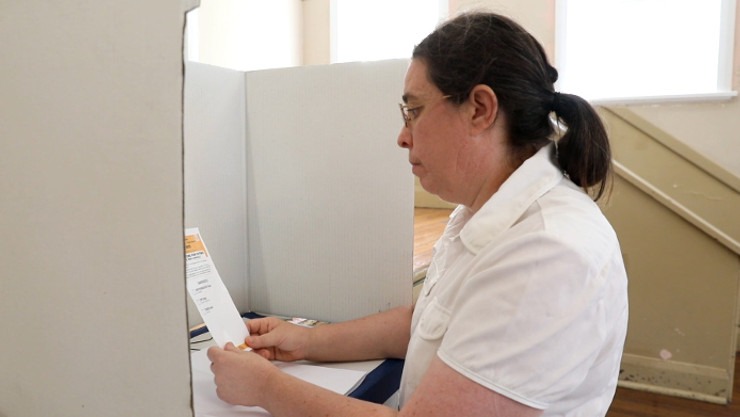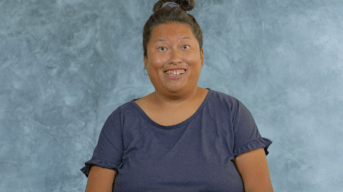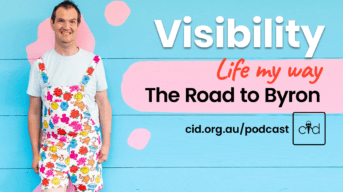
NSW election 2019 – what do the parties say about intellectual disability?
The NSW State election is on Saturday 23 March. To help you consider who you want to give your vote to, we have put together information on the record of the Liberal/National Government and commitments made by the political parties.
Review of the current term of government
We at CID have been very critical of the Liberal/National Government’s approach to NDIS implementation and its exit from being a disability service provider:
- The speed of transition of people with disability into the NDIS with 78,000 people in NSW transitioning in two years.
- The government exiting from service provision at the same time as NDIS transition with minimal consultation with people with intellectual disability and their families. The process focused on tendering out services in large blocks rather than individual choice and control.
- The government exiting from its role as last resort and crisis service provider when the NDIS was not equipped to take on this role.
The government was also committed to stop funding disability advocacy services in June 2018. It was only in April 2018 that they changed this position and extended funding until mid-2020.
On the other hand, the government has taken some substantial positive actions for people with intellectual disability:
- Establishing a statewide network of intellectual disability health services to provide backup to mainstream health services.
- Funding two highly specialised intellectual disability mental health services, one for adults and one for children.
- Funding a statewide justice advocacy service to provide support to help people with cognitive disability navigate the criminal justice system. This service will commence shortly and be similar to the comparatively small Criminal Justice Support Network of the Intellectual Disability Rights Service.
- Piloting a cognitive impairment diversion program in two local courts.
- Committing to the establishment of an Ageing and Disability Commission with a broader role than the Ombudsman had in addressing abuse and neglect of people with disability.
Looking forward – what we asked the parties
In December 2018, CID submitted to the political parties commitments we were seeking in the state election. Our key commitments were focused on:
- Putting people with disability at the centre of government through a permanent Disability Inclusion Unit in the Department of Premier and Cabinet.
- Establishing a specialist intellectual disability mental health role across the state.
- Improved disability support for people who get into trouble with the justice system.
- Continuation and expansion of NSW government advocacy funding.
We also asked for commitments on updating guardianship laws, transport, maintaining important functions of the Ombudsman, rights protection in supported accommodation and a disability service provider of last resort.
The parties have responded
The Liberal/National government has responded in a detailed letter mainly emphasising steps that are already in place rather than committing to what we ask. The government does commit to:
- A major enhancement in physical access to 68 train stations.
- Maintenance of the Community Justice Program, which provides tailored community support to people with intellectual disability and histories of serious offending. This appears to be a three-year commitment.
The Labor opposition has responded positively to some of the commitments we asked for:
- Labor will reinstate the role of the NSW Government as a provider of last resort, especially for people with complex and challenging needs.
- It will consider moving responsibility for leadership in disability inclusion from Family and Community Services to the Department of Premier and Cabinet.
- Labor commits $1 billion to upgrading train stations and to reviewing non-physical barriers to access for people with intellectual disability.
- Labor will maintain the deaths review and community visitor roles of the Ombudsman. The future of these has been unclear with NDIS implementation.
The Greens have written to us with strong and clear support for most of the commitments we asked for. This includes:
- Making the Minister for Disability Inclusion a senior cabinet role.
- Having specialist intellectual disability mental health services in all health districts.
What about advocacy funding?
Labor and the Greens have been very clear in their commitment to continued funding of advocacy services, as have the Christian Democrats, Shooters, Fishers and Farmers Party and independent members Alex Greenwich, Greg Piper and Joe Maguire.
Labor has specifically committed to maintaining disability advocacy funding at the current rate of $13 million a year. The Greens have committed to $20 million dollars a year.
Disappointingly, the government has not committed to funding advocacy. Instead, they say that, before June 2020, they will “identify, monitor and address any emerging gaps” in advocacy services, including “reviewing any ongoing need” to extend funding.
Education
In public education, the government recently released a Disability Strategy, which has substantial potential to improve the education of students with disability.
On the other hand, the strategy does not provide any clear leadership on maximising the opportunities for students with disabilities to be part of ordinary classes in mainstream schools.
Labor has committed to major increases in spending on schools, including employing more teachers.
The Greens support fully inclusive education.
In tertiary and further education, both the government and Labor have made significant commitments to increased funding, with Labor specifically committing to free training of workers for the disability workforce.
Over to you!
On Saturday, each of us can weigh up the record and promises of the parties and decide who gets our vote.
CID looks forward to working with the next parliament to advance the rights and inclusion of people with intellectual disability.
Find out more
- Check out our Easy Read information on how to vote at our blog NSW election – have your say!



 1800 424 065
1800 424 065 














